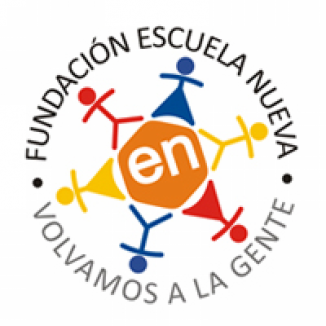We are a non-governmental organization committed to improve the life chances and opportunities of children and their families by rethinking learning and improving the quality of education.
This nonprofit was founded in 1987 by the creators of the Escuela Nueva pedagogical model and the original team that developed the program in the rural sector, as well as experts with extensive experience working on social and educational issues in the developing world. Our goal is to assure the quality and integrity of the implementation of the Escuela Nueva model, in pilot projects and as it expands, as well as continue to update it and adapt it to urban contexts, new populations and non-formal settings.
In 1987 we adapted the Escuela Nueva strategies and materials for urban contexts calling the program Escuela Activa Urbana. Since then, we´ve been developing projects in a number of cities in Colombia. We continued innovating and, in 2001, developed the Escuela Nueva Learning Circles program as a way to restore educational services for children and youth who are displaced and out of school. We also designed the Escuela Nueva Itinerante program as a practical solution for communities affected by natural disasters and emergencies in Colombia. Committed to this goal, we’ve continued to innovate and adapt the model and associated instructional strategies to new sectors and target populations.
We believe that poverty, injustice and exclusion can be combated through education. We see quality education as a tool that protects children, and also as the cornerstone of social and human development. We believe that quality education for all can be achieved. We are committed to the development of an ethos of peace and participation where children, teachers and communities are the primary drivers of change, where children learn to learn and their education is key to improving their lives and that of their families, thus producing a large scale social change.
Escuela Nueva is an educational model designed in Colombia in the mid 1970’s by Vicky Colbert, Beryl Levinger, and Óscar Mogollón to improve the quality, relevance and effectiveness of the schools in the country. The program was initially aimed at rural multi-grade schools where one or two teachers simultaneously teach all grades. These schools typically exist in areas with a low population density in both developed and developing countries. Escuela Nueva is today a globally recognized and proven social innovation that improves the quality of education. It benefits children, teachers, administrators, families, and the community through four interrelated components: the curriculum and classroom, community, training, and management.
With simple, concrete strategies, Escuela Nueva promotes a classroom environment where students actively learn, participate, and collaborate; and strengthens the relationship between the school and the community. It is a flexible educational model tailored to meet the needs of each individual child, allowing students to complete units and advance to higher grade levels at their own pace.
The Escuela Nueva model focuses on the child. It improves retention and academic achievement, lowers the dropout and grade repetition rates, and develops values and social skills of civic, democratic behaviors and peaceful coexistence.

